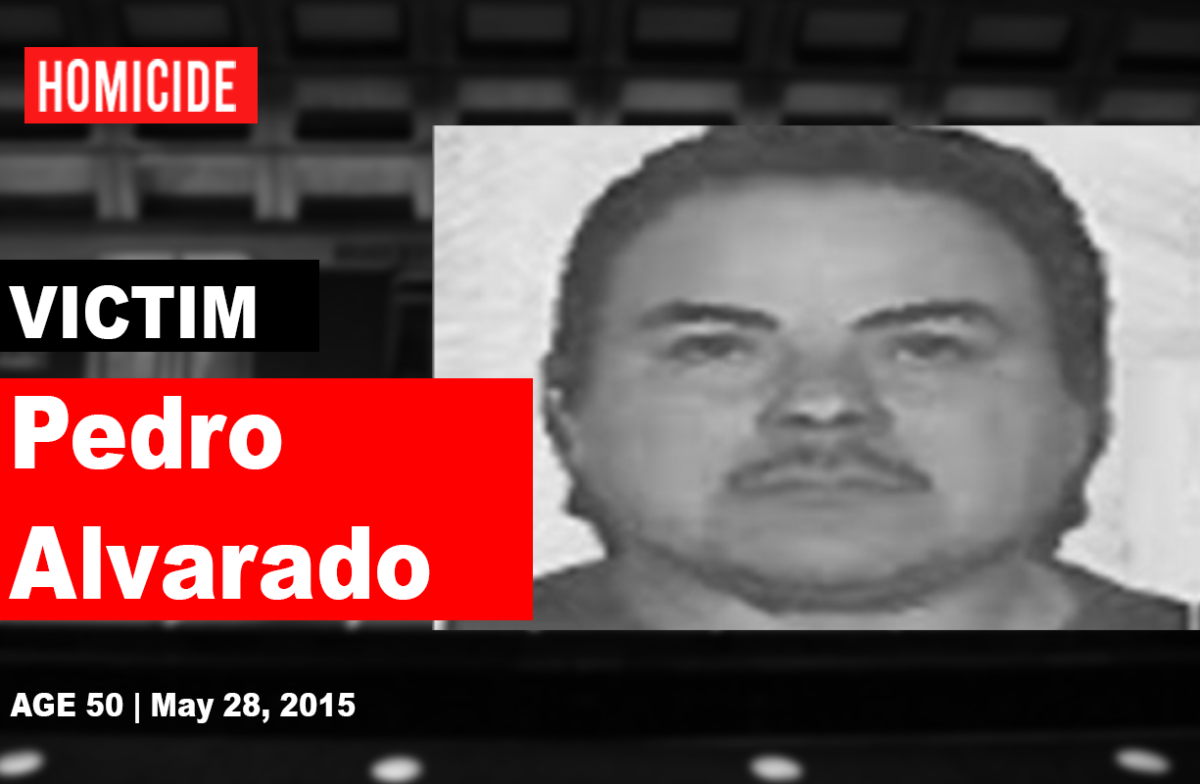
Thank you for reading D.C. Witness. Help us continue our mission into 2024.
Donate NowBy
Mia Febles [former]
- April 2, 2024
Court
|
Daily Stories
|
Homicides
|
Shooting
|
Victims
|
On April 1, a homicide suspect’s ex-coworker testified about the defendant’s alleged gang involvement before DC Superior Court Judge Maribeth Raffinan.
Oscar Ramos, 34, is charged with first-degree murder while armed, two counts of possession of a firearm during a crime of violence, and assault with intent to kill while armed for his alleged involvement in the fatal shooting of 50-year-old Pedro Alvarado Melendez. The incident occurred on May 28, 2015, on Interstate 295 North at Exit One, in Southwest DC. The incident left another individual suffering from non-life-threatening injuries.
An ex-coworker of Ramos’ testified in a previously recorded deposition due to his current immigration status. Judge Raffinan advised the jury to act as if the witness was normally testifying in court.
Throughout the deposition, all parties referred to Ramos by his known nickname, “Silencio”–Spanish for quiet, without any sound.
The prosecution asked the witness how long he had known Silencio. The witness claimed he did not remember, and added he didn’t know how to read when asked if reviewing his grand jury testimony would refresh his memory.
Then, the prosecution continued to read out-loud the witness’ grand jury testimony, where he stated that he had known Silencio for approximately four to five years.
In the deposition, the prosecution asked the witness if he wanted to be testifying in court. The witness said no and generally appeared uncooperative throughout the recorded session.
When the prosecution asked the witness to make an identification of Silencio, the witness stated “I don’t know him,” adding, “I don’t know who he is.”
“I know a lot of people that go by Silencio,” the witness claimed.
Throughout the deposition, the witness would respond, “I don’t know anything.”
The witness claimed he was “treated like a dog” by the US Attorney’s Office.
However, when the witness was asked if he was mistreated during his grand jury testimony, he stated otherwise.
The prosecution also called a detective from Chelsea Police Department in Massachusetts, who spoke of an encounter he had with Ramos on Dec. 20, 2013 during which the detective took photos of Ramos’ face, torso, and back.
In the photo of Ramos’ torso, the witness identified a tattoo reading “Everett,” which is a community neighboring Boston, Massachusetts. However, his Mara Salvatrucha (MS-13) tattoos allegedly referencing the notorious gang remained covered based on a previous ruling by Judge Raffinan.
Through the tattoos, the detective was allegedly able to identify Ramos in court.
Next, the prosecution called a lieutenant from the Montgomery County Police Department. The witness conducted a surveillance operation to locate and stop Ramos. According to the lieutenant, when he stopped Ramos and asked for a driver’s license, Ramos gave him a license with his photo and a different name.
Following the lieutenant’s testimony, the prosecution called a forensic scientist from the Federal Bureau of Investigations (FBI). The prosecution provided the witness several photographs of Alvarado’s vehicle after the murder and asked her a series of questions regarding the vehicle’s defects.
The photographs revealed bullet holes in the driver’s side of the vehicle, “potential blood” splatters on the driver’s side seat, and projectile fragments.
The prosecution also called a digital investigative analyst from the Department of Justice, who reviewed the Facebook account data for two separate profiles identified as Oscar Rodriguez and Rosa Lopez. The Rodriguez account is believed to belong to Ramos, and the Lopez account was allegedly created by Ramos to stalk Alvarado.
After comparing the Oscar Rodriguez and Rosa Lopez account data, the witness found that “at certain points in time, both accounts were accessed at similar times using the same IP addresses.”
According to the witness, it “appears quite likely that the same device was being used to access both the Ramos and Lopez accounts.”
In a cross-examination, Ramos defense attorneys, Camille Wagner and Rachel McCoy, questioned the witness about whether he knew exactly where the device that accessed the Facebook accounts was located. The witness testified he did not know.
Wagner also asked the witness to grab her phone and try to log on to Facebook. She argued that someone could take her phone and do whatever they wanted with it.
“You can’t tell the jury who controls an account?” Wagner asked the witness. “You personally do not know who was using the Rosa Lopez account?”
The witness responded he cannot.
Parties are slated to return on April 2.
Follow this case